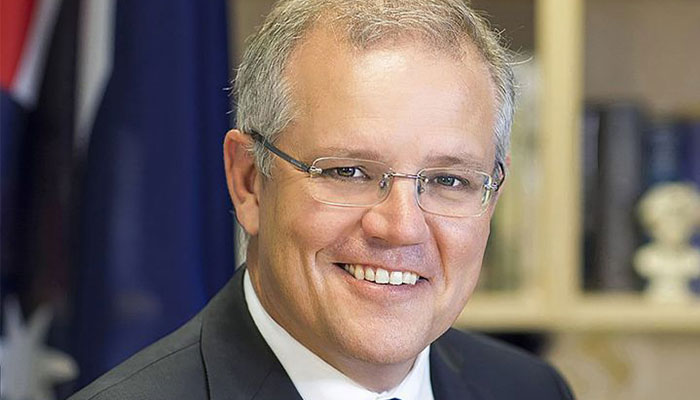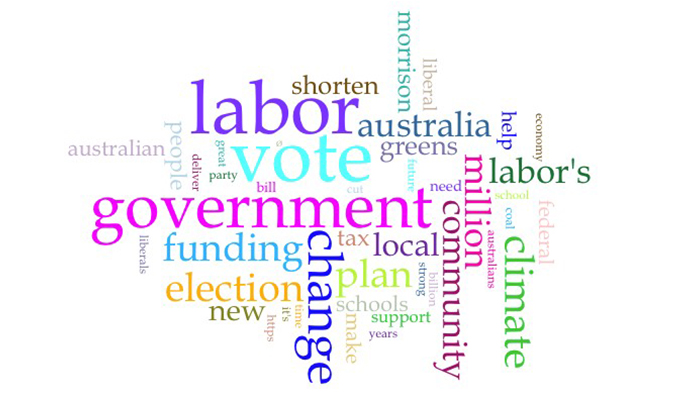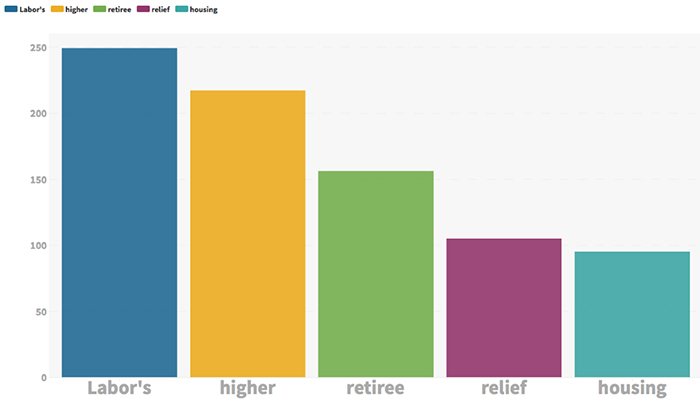We are in the phase of the post-election analysis where the brilliance of the winning side’s messages are self-evident, and the losing side’s narrative wrong from the outset.

The Guardian’s election campaign database of over 10,000 political Facebook advertisements from a wide variety of Facebook pages, gives us a fantastic word bank to dissect the messaging of the political parties.
The word cloud below provides a snapshot of the most frequently used words in the campaign advertising.
You can see that Labor or Labor’s is much more prominent that Liberal, Liberals or Liberal’s. In other words, the campaign was more focused on Labor – both what the Labor party was saying about itself, and what the LNP wanted voters to think about Labor.

Winning words: the words that appeared most in the 2019 Federal Election advertising campaign.
When we add up all mentions of Labor and all of the Coalition, the references to Labor dominate by two to one.
What did the winners pin on the losers in this latest election battle?
The weaponised words that hurt most
A key answer to this question comes from the battleground over the word “tax”, which also features in the list of top words of the campaign – it is as frequent as the words “Shorten” and “Morrison”.
The data shows us how the Coalition weaponised the word “tax”. The graph below shows the words that were most frequently associated with the word tax.
The most prominent is Labor’s, with higher, retiree and housing not far behind. The Liberal party forced Labor to own the word tax in this campaign in the form of retiree tax, higher taxes, housing tax, car tax, and inheritance/death taxes. Meanwhile, “tax” plus “relief” was Coalition territory.

Fighting words: The top five words associated with the word “tax” in The Guardian’s election campaign Facebook data.
The Guardian’s data show the Coalition’s strategy of creating a deep association between “Labor” and “tax”. Whether or not the changes to franking credits were “really” a tax or not is irrelevant.
The squeakiest wheel
As former Prime Minister Gilliard learnt the hard way, if you call something a “carbon price”, and your opposition calls it a “carbon tax”, the winner is not the one whose policy is better, or whose words are more accurate. The loudest one wins.
Calls for truth in political advertising were heard during the election campaign, and since. But you just can’t pin language down: the meaning words have depends on how they are used, and even who is using them.
This is why one person’s franking credit changes are another person’s “retiree tax”.
There’s only one prominent association in The Guardian’s Facebook data with “Liberals” which is the Liberals’ cuts to penalty rates. Hardly trips off the tongue. (I reckon “Libs war on wages” has a better ring to it).

Mud sticks: Associate Professor Annabelle Lukin says word association can last a long time.
Language doesn’t care what we do with it. It is equally at home with politicians who want to inspire with grand rhetoric as it is with those whose prime strategy is to divide us.
- Let's get that bread: how teenagers change language
- Mystery of stolen Egyptian artefact cracked by hieroglyphs
But language ‘remembers’. The associations we build up around the words we choose, whether for good or for ill, hang around. They can become the proverbial albatross.
Given the current semantics around the word “tax”, it is hard to see how Australia can have a mature debate on how to build the wealth we need for the many things we expect government to do for us.



